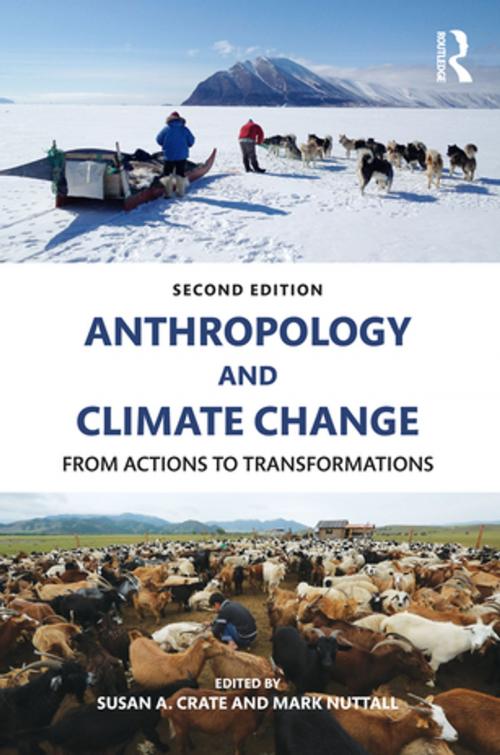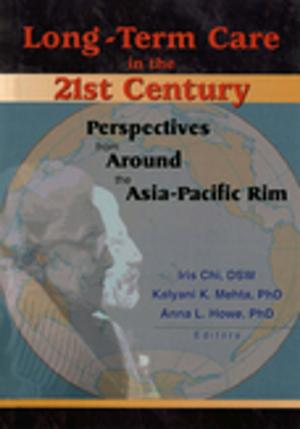Anthropology and Climate Change
From Actions to Transformations
Nonfiction, Social & Cultural Studies, Social Science, Anthropology| Author: | Susan A. Crate, Mark Nuttall | ISBN: | 9781315530314 |
| Publisher: | Taylor and Francis | Publication: | March 31, 2016 |
| Imprint: | Routledge | Language: | English |
| Author: | Susan A. Crate, Mark Nuttall |
| ISBN: | 9781315530314 |
| Publisher: | Taylor and Francis |
| Publication: | March 31, 2016 |
| Imprint: | Routledge |
| Language: | English |
The first edition of Anthropology and Climate Change (2009) pioneered the study of climate change through the lens of anthropology, covering the relation between human cultures and the environment from prehistoric times to the present. This second, heavily revised edition brings the material on this rapidly changing field completely up to date, with major scholars from around the world mapping out trajectories of research and issuing specific calls for action. The new edition
-
introduces new “foundational” chapters—laying out what anthropologists know about climate change today, new theoretical and practical perspectives, insights gleaned from sociology, and international efforts to study and curb climate change—making the volume a perfect introductory textbook;
-
presents a series of case studies—both new case studies and old ones updated and viewed with fresh eyes—with the specific purpose of assessing climate trends;
-
provides a close look at how climate change is affecting livelihoods, especially in the context of economic globalization and the migration of youth from rural to urban areas;
-
expands coverage to England, the Amazon, the Marshall Islands, Tanzania, and Ethiopia;
-
re-examines the conclusions and recommendations of the first volume, refining our knowledge of what we do and do not know about climate change and what we can do to adapt.
The first edition of Anthropology and Climate Change (2009) pioneered the study of climate change through the lens of anthropology, covering the relation between human cultures and the environment from prehistoric times to the present. This second, heavily revised edition brings the material on this rapidly changing field completely up to date, with major scholars from around the world mapping out trajectories of research and issuing specific calls for action. The new edition
-
introduces new “foundational” chapters—laying out what anthropologists know about climate change today, new theoretical and practical perspectives, insights gleaned from sociology, and international efforts to study and curb climate change—making the volume a perfect introductory textbook;
-
presents a series of case studies—both new case studies and old ones updated and viewed with fresh eyes—with the specific purpose of assessing climate trends;
-
provides a close look at how climate change is affecting livelihoods, especially in the context of economic globalization and the migration of youth from rural to urban areas;
-
expands coverage to England, the Amazon, the Marshall Islands, Tanzania, and Ethiopia;
-
re-examines the conclusions and recommendations of the first volume, refining our knowledge of what we do and do not know about climate change and what we can do to adapt.















